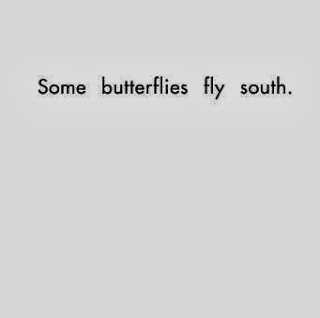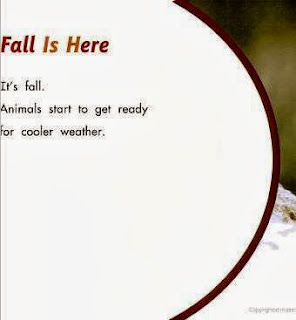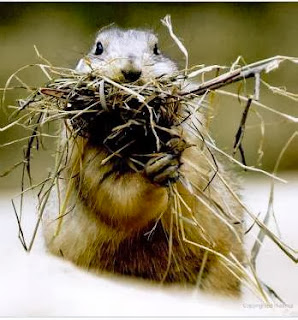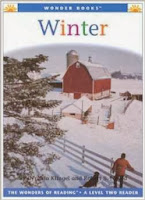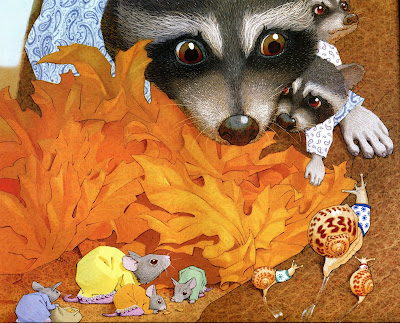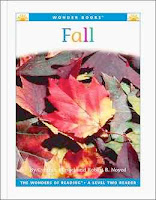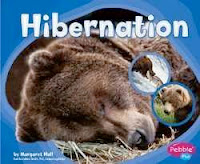Winter's an
amazing time. Plants die or go dormant, and animals alter the patterns
of their lives, changing color, migrating, and even going dormant
themselves.
This list features books at the First Grade reading level.
This list features books at the First Grade reading level.
**all ratings from GoodReads
**most of these books are available in Spanish
WHAT DO ANIMALS DO IN FALL?
by Rebecca Felix
Common Core State Standards
Simple text about how animals prepare for winter -- including migration and hibernation. Large, bright color photographs correspond well to the text.
Reading Information:
Word Count: 126
Page Count: 24
Accelerated Reader: 1.0 / points: 0.5
AR quiz: 158281
Lexile: 300L
 ANIMALS IN THE FALL
ANIMALS IN THE FALLby Gail Saunders-Smith
The
text in this book is very, very simple and meant for children who need
to build confidence. Or contrarily as a book for toddlers and
preschoolers who are not yet reading.
Geese fly south. Some butterflies fly south. Deer grow winter coats.
The
super simple text would be easy for adults to point to with their
index finger as they share the book. And because there are so few
words it would be easy for children to grasp the concept of reading,
and how we go from left to right, and how words are separated by
spaces, etc.
The simple text there are colorful pictures of Monarch butterflies and whales and geese, and other creatures.
The simple text there are colorful pictures of Monarch butterflies and whales and geese, and other creatures.
I would use it for
children who need to build confidence. Or contrarily as a book for
toddlers and preschoolers who are not yet reading. There are so few
words that adults can point as they read, demonstrating to children how
we read from left to right, and how words are separated by spaces,
etc.
Table of Contents
Animals That Travel
Animals That Change
Animals That Work
Words to Know
Read More
Internet Sites
Index/Word List
Reading Information:
Word Count: 35
Page Count: 24
Accelerated Reading Level: 1.1/ points: 0.5
AR quiz: 32077
Lexile: 380L
 ANIMALS IN FALL
ANIMALS IN FALLby Martha E. H. Rustad
3.32 avg rating — 25 ratings
Shows animals at work as they gather food and prepare shelter to survive the winter ahead.
Word Count: 111
Page Count: 24
Accelerated Reader: 1.2 / points: 0.5
AR quiz: 115416
Lexile: 220L
WINTER
(Wonder Books: Level 2 Seasons)
by Cynthia Klingel & Robert B. Noyed
Simple text talks about the season of winter, weather changes and their effects on plants, animals,
and people.
Word Count: 179
Page Count: 24
Accelerated Reader: 1.5 / points: 0.5
AR quiz: 48256
 HIBERNATION STATION
HIBERNATION STATIONby Michelle Meadows
Kurt Cyrus (Illustrator)
3.59 avg rating — 241 ratings
Cute, cute, cute. We loved the drawings in this book that takes an ENTIRELY whimsical look at hibernation.
Fuzzy slippers, warm pajamas.
Forest babies and their mamas...
show up early at the station!
Time for winter hibernation.
Word Count: 200
Page Count: 40
Accelerated Reader: 1.5 / points: 0.5
AR quiz: 139421
FALL
(Wonder Books: Level 2 Seasons)
by Cynthia Klingel & Robert B. Noyed
Simple text talks about the season of Fall, weather changes and it's effects on plants, animals,
and people.
Word Count: 181
Page Count: 24
Accelerated Reading Level: 1.6 / points: 0.5
AR quiz: 48221
BUSY ANIMALS : Learning About Animals In Autumn
by Lisa Bullard
Nadine Takvorian (Illustrator)
3.83 avg rating — 6 ratings
A nature preserve provides a background for learning about what animals do to adapt to cooler weather.
Word Count: 286
Page Count: 24
Accelerated Reading level: 1.8 / points: 0.5
AR quiz: 137984
Lexile: 430L
HIBERNATION
(Patterns in Nature series)
by Margaret Hall
NSTA Recommended
- 3.73 avg rating — 11 GoodReaders
Brilliant and interesting photographs,
easily understood diagrams and a short, informative text are the
highlights of this Patterns in Nature series, which features titles on
day and night, hibernation, phases of the moon and seasons of the
year.
Children will indeed choose this book by its cover: it depicts a huge brown bear sound asleep, eating grass and grabbing a fish from the river. In answer to the question on the first page, why hibernate? we see a picture of splotches of snow stuck to a bear surrounded by snow. Food is hard to find. We see tiny animals hibernating also, including clusters of bats that don t even go to the bathroom.
Getting ready to hibernate means getting fat on fish (bears), filling a burrow with acorns (chipmunks), or digging a warm hole in the mud (frogs). Each title features a pattern diagram on the last page--in this case getting ready, finding a den, hibernating, and leaving the den. Hibernating is one of nature's patterns. Children can see the principle and learn the words that explain that principle.
There is a very short index, a glossary, a list of additional books, and a reference to the Facthoundweb site with links to age-appropriate sites for each book. This is an outstanding series of concept books for new and pre-readers; the photographs make the book interesting enough to use with older children who struggle with reading and concepts. --Childrens Literature Comprehensive Database, January 2007
Word Count: 181
Page Count: 24
Accelerated Reading Level: 1.8 / points: 0.5
AR quiz: 108397
Lexile: 390LChildren will indeed choose this book by its cover: it depicts a huge brown bear sound asleep, eating grass and grabbing a fish from the river. In answer to the question on the first page, why hibernate? we see a picture of splotches of snow stuck to a bear surrounded by snow. Food is hard to find. We see tiny animals hibernating also, including clusters of bats that don t even go to the bathroom.
Getting ready to hibernate means getting fat on fish (bears), filling a burrow with acorns (chipmunks), or digging a warm hole in the mud (frogs). Each title features a pattern diagram on the last page--in this case getting ready, finding a den, hibernating, and leaving the den. Hibernating is one of nature's patterns. Children can see the principle and learn the words that explain that principle.
There is a very short index, a glossary, a list of additional books, and a reference to the Facthoundweb site with links to age-appropriate sites for each book. This is an outstanding series of concept books for new and pre-readers; the photographs make the book interesting enough to use with older children who struggle with reading and concepts. --Childrens Literature Comprehensive Database, January 2007
Word Count: 181
Page Count: 24
Accelerated Reading Level: 1.8 / points: 0.5
AR quiz: 108397
 ANIMALS IN WINTER
ANIMALS IN WINTERby Martha E. H. Rustad
When snow
falls animals and people adapt to the cold. People bundle up, but what do animals do?
The text in this book is simple, and the photographs on the right hand side cover an entire page. Animals include bats and snowshoe hares.
Word Count: 148The text in this book is simple, and the photographs on the right hand side cover an entire page. Animals include bats and snowshoe hares.
Page Count: 24
Accelerated Reading level: 1.9 / points: 0.5
AR quiz: 123650
Lexile: 400L
------------------------------------------------------------------
You might be interested in HIBERNATION & ANIMALS IN FALL & WINTER -- Kindergarten level books
------------------------------------------------------------------
compiled by Pam
updated October 2014



